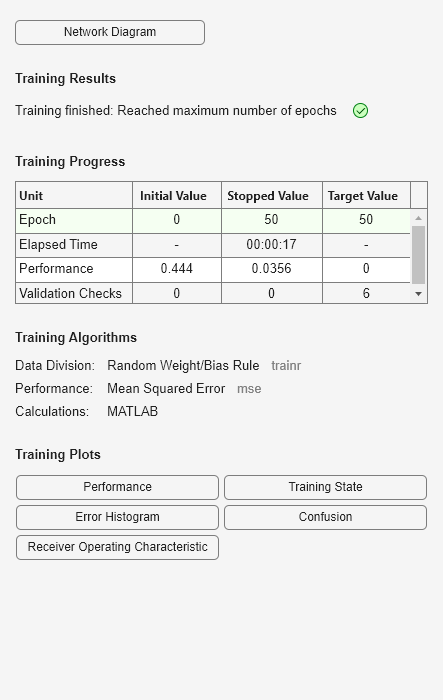lvqnet
Learning vector quantization neural network
Syntax
lvqnet(hiddenSize,lvqLR,lvqLF)
Description
LVQ (learning vector quantization) neural networks consist of two layers. The first layer maps input vectors into clusters that are found by the network during training. The second layer merges groups of first layer clusters into the classes defined by the target data.
The total number of first layer clusters is determined by the number of hidden neurons. The
larger the hidden layer the more clusters the first layer can learn, and the more complex
mapping of input to target classes can be made. The relative number of first layer clusters
assigned to each target class are determined according to the distribution of target classes at
the time of network initialization. This occurs when the network is automatically configured the
first time train is called, or manually configured with the
function configure, or manually initialized with the
function init is called.
lvqnet(hiddenSize,lvqLR,lvqLF) takes these arguments,
hiddenSize | Size of hidden layer (default = 10) |
lvqLR | LVQ learning rate (default = 0.01) |
lvqLF | LVQ learning function (default = |
and returns an LVQ neural network.
The other option for the lvq learning function is learnlv2.
Examples
Version History
Introduced in R2010b

